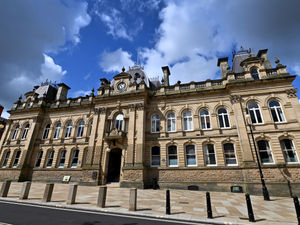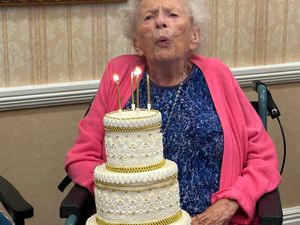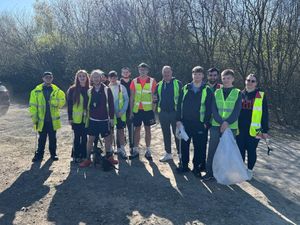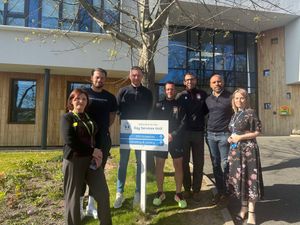Desperate families in Wolverhampton voluntarily cut themselves off from energy suppliers as prices spiral
More than 100 desperate Wolverhampton families voluntarily cut themselves off from their electricity or gas supply due to rising prices.

Wolverhampton Homes helped reconnect 104 tenants to an energy supplier in the last year but it is impossible to know the full number of people who have done the same across the city.
The consequence of the energy crisis was revealed at a Wolverhampton Council cabinet meeting as councillors discussed the problems facing the city's poorest residents.
Councillor Bhupinder Gakhal said: "One hundred and four families have been reconnected with their gas supply, people are having to choose between heating and eating which is a sad fact but the increase in fuel bills is astronomic.
"It must be a nightmare for these families who have been forced into the decision to cut themselves off from their energy supplier, the numbers we have are just for Wolverhampton Homes tenants that we know about.
"There will be countless more people who are too embarrassed to say they have cut themselves off, it is people with meters and who have to pay bills.
"And it will not be just people who are on benefits, this is affecting working people."

Deputy leader of Wolverhampton Council Councillor Stephen Simkins branded the situation "deplorable".
He said: "I just cannot believe we have got people voluntarily cutting themselves off from their gas supply in the 21st Century in a modern city in Wolverhampton.
"Thankfully Wolverhampton Homes are putting people back on track when they need it the most."
He added: "This Government is doing nothing to help these people, this council has done more than the chancellor in helping its most vulnerable people."
Wolverhampton Council announced a variety of proposals to help residents who have slipped through the fuel poverty gap, including spending £1.1 million on targeted help of the poorest in the city to help with energy bills and food costs.
Councillor Gakhal implored people not to cut themselves off from their energy supplier even if the bills are increasing more than inflation.
He said: "Speak to somebody, the council can help, charities can help and there is always someone who can help.
"It is a heartbreaking situation."
Wolverhampton Homes employees who visit tenants and notice they are not connected to an energy supplier have been told to report the problem so help can be given.
Meanwhile the council's cabinet sanctioned an action plan to help those in peril due to poverty.
The 26-page Financial Wellbeing Strategy 2022-2025: Tackling the Cost of Living Crisis plan has been drawn up by to try and stop the poorest falling through the gaps.
There was shock in the council chamber when Councillor Bhupinder Gakhal, cabinet member for housing and city assets, revealed more than 100 families had been reconnected by Wolverhampton Homes to their energy supplier after they cut themselves off due to fear of bills.
The council has already given working families in need a reduction in their council tax bill of £150 since Covid began and has set aside another £743,000 to do the same this year.
Working families will also get a reduction in their council tax bill with more £743,000 put aside to provide cuts to those who qualified last year for hardship help.
Deputy leader Councillor Stephen Simkins said: "We are using funding streams to help people who are working. This is targeted intervention to stave off financial hardship, it is a tragedy we are having to do this for people who work.
Wolverhampton is in the top 10 per cent of deprived areas in the country, has the third highest youth unemployment rate (9.9 per cent compared to the 5.1 per cent average), the fourth highest unemployment rate (8 per cent compared to 4.4 per cent national average) and 31.6 per cent of children living in low income households compared to the national average of 19.1 per cent.
The strategy also pinpoints the most deprived areas in Wolverhampton. The worst wards are Bilston East, East Park and Bushbury South and Low Hill.
The report says: "The economic downturn, cost of living crisis and the impact of Covid-19, alongside historically high levels of deprivation, have encouraged a renewed focus on debt, poverty and promoting financial wellbeing in Wolverhampton.
"Our understanding of the impact of Covid 19 is changing rapidly and further learning will emerge over the coming weeks and months to help shape and develop the implementation of this strategy.
"The cost of financial exclusion is high, both to households affected and to society. It impacts on general wellbeing and is closely related to poverty and social exclusion."
The strategy also aims to help people be fiscally more responsible and to reduce indebtedness by educating those who are in hock to loan sharks that credit unions would be better for them in the long run.





